Can Cold, Cloudy Weather Increase Your Risk Of Getting A Heart Attack?
Those with cardiovascular disease can increase their risk of heart attack by being outside and over-exerting themselves during the winter season. Cold weather makes the heart work harder to keep the body warm, and as a result, your heart rate and blood pressure may increase. These changes can cause heart problems like a heart attack, especially if someone already has a diagnosed heart condition.
Notwithstanding the risk a change in the season poses, there are some easy-to-follow methods to protect yourself while enjoying the weather. Read more to find out how cold, cloudy conditions can affect your heart health.
What Increases the Risk?
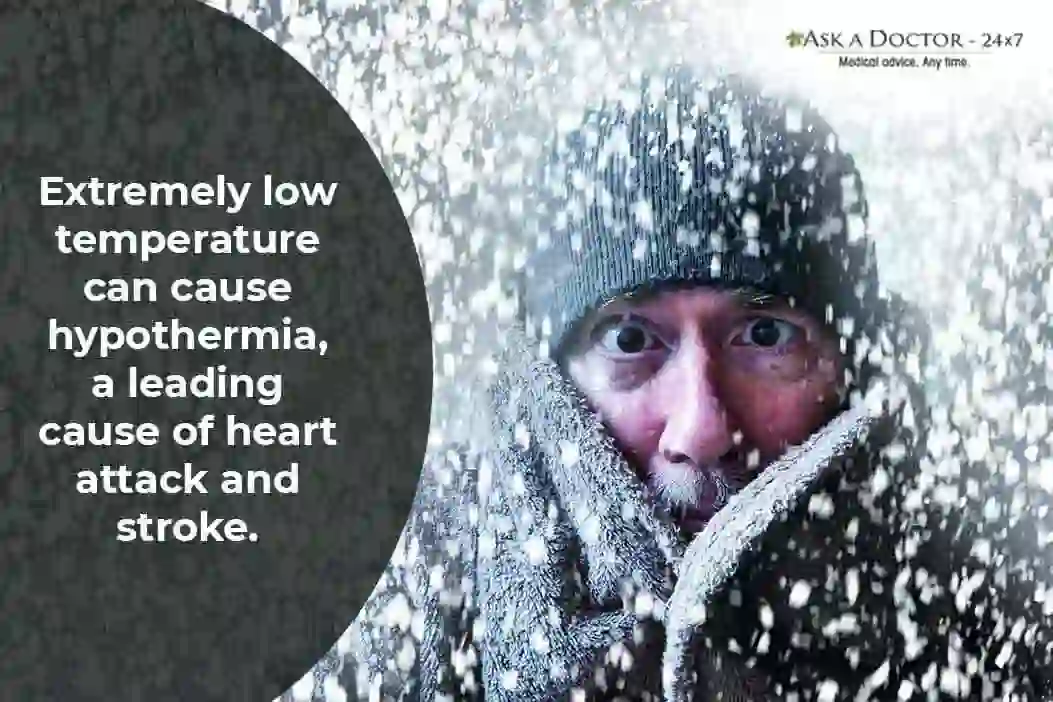
Freezing weather can cause hypothermia in older adults, making their bodies lose heat rapidly. During hypothermia, the heart must work harder to maintain the body’s temperature above 35 degrees Celsius. Cold can increase the risk of blood clot formation, responsible for heart attacks and stroke. This is also the leading cause of death in seniors during winter.
Excessive workout raises blood pressure during the winter season
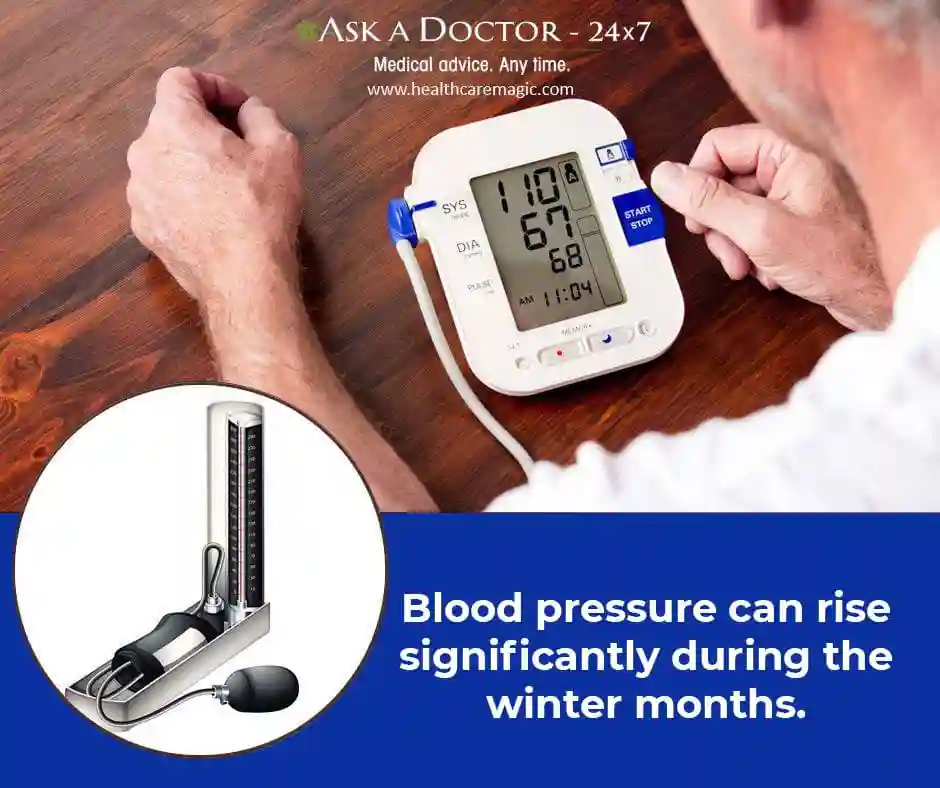
While being active helps people stay warm during colder months, the elderly may benefit more from avoiding the added strain on their heart. If you have hypertension, you should be aware that blood pressure rises significantly during the winter season. Your heart’s health can also affect your ability to exercise.
Consuming Alcohol Immediately Before or After Being Outdoors
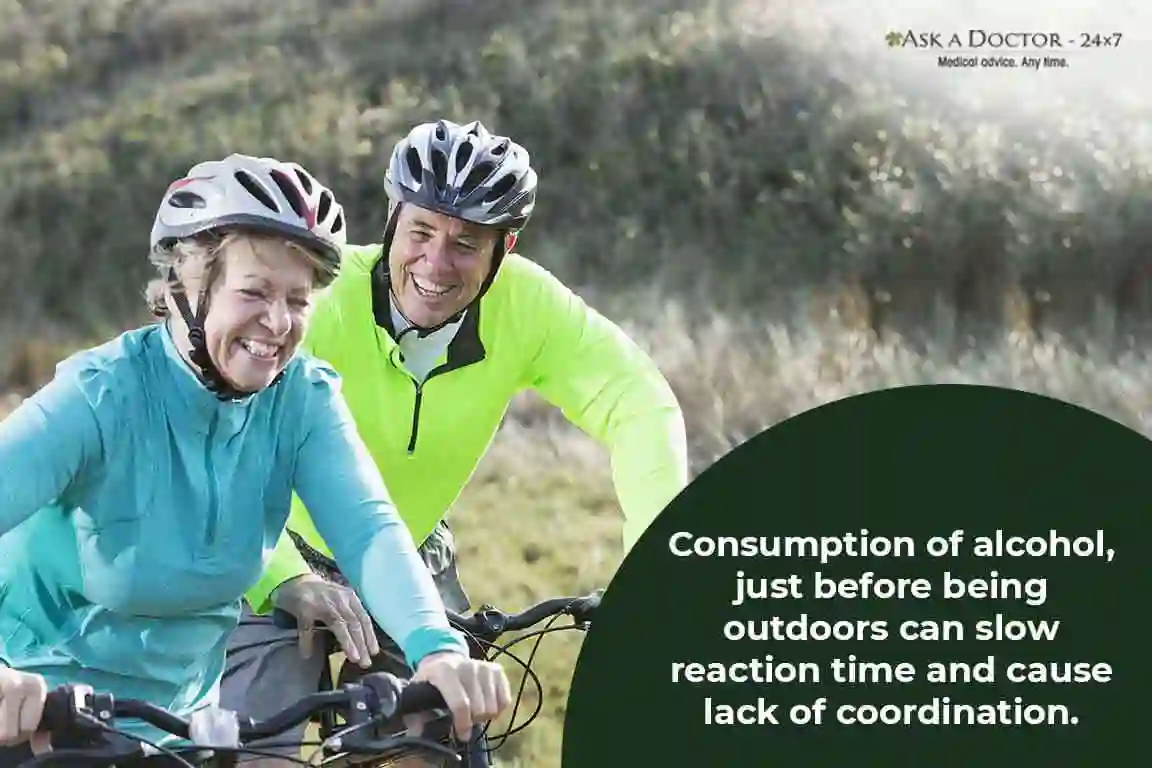
Alcoholic drinks consumed before or after vigorous outdoor activities can slow down reaction time and cause lack of coordination. After a few drinks, you may feel warmer and underestimate the risk of hypothermia. To find out more about how alcohol can affect your heart, you can ask a cardiologist online.
It’s (NOT) Just the Flu!
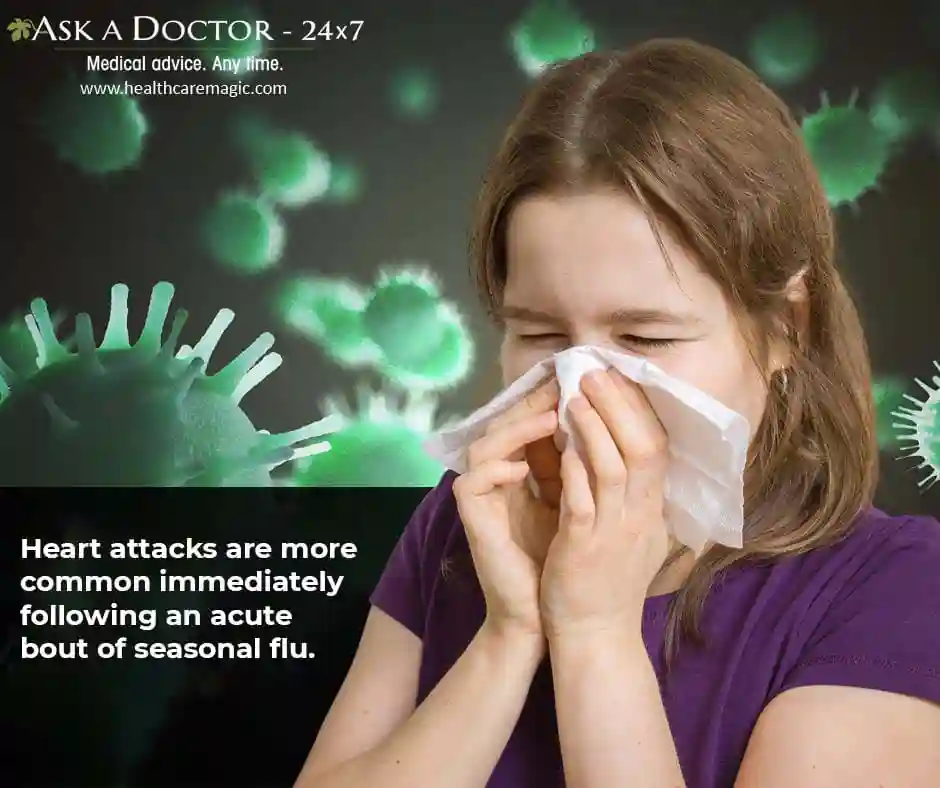
Have you been delaying your influenza vaccination? Remember, heart attacks are more common immediately following an acute bout of seasonal flu. Seniors should also get pneumococcal vaccines to protect themselves against pneumonia, meningitis, and bloodstream infections.
Some precautionary measures should be taken while administering certain vaccines in people who have heart disease. Common cold medications can interact with your prescription medications. Always ask your doctor before taking over-the-counter medicine for cold and flu.
Regular Screening
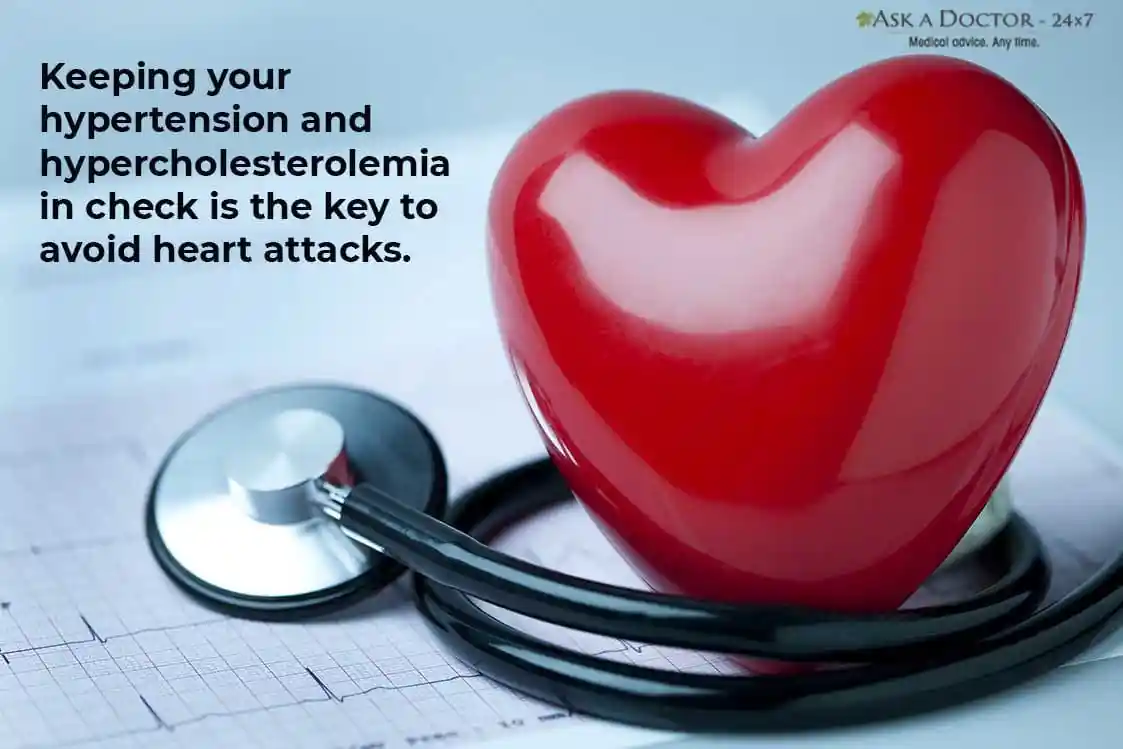
Be aware of the risk of a silent heart attack. A silent heart attack is one that does not show the obvious symptoms. People who consider themselves healthy often fail to recognize the signs of a heart attack.
Do not skip your regular health checkups for flimsy reasons such because it’s too cold to go out. Keeping your hypertension and hypercholesterolemia in check is the key to avoiding heart attacks. Some of your medicines, such as hormone replacement therapy (HRT) medications, can increase the risk of blood clots, which is a leading cause of myocardial infarction.
A Healthy Diet for A Healthy Heart
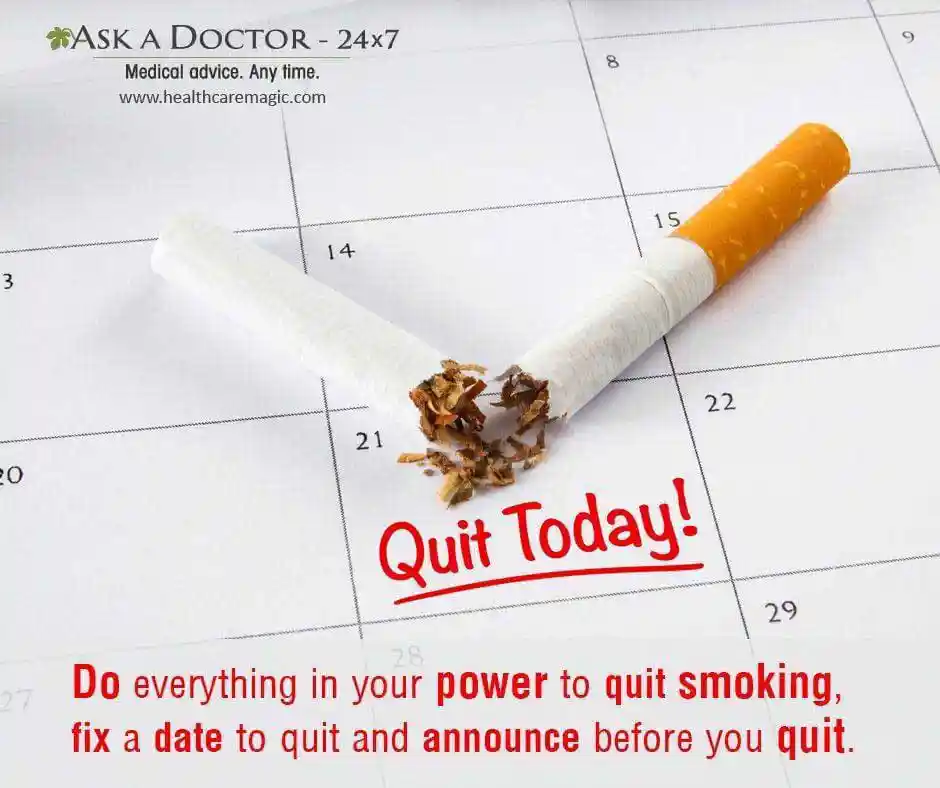
Choose foods that are low in calories but high in fiber, vitamins, minerals, and other nutrients. Include plenty of seasonal vegetables and fruits in your diet. Eat a balanced meal that includes whole grains, low-fat dairy products, fish, poultry, and nuts for a healthy heart. These foods also improve your immunity against cold and flu.
Do not let the cold weather tempt you into indulging in comfort foods that are not healthy for your heart. Try a bowl of homemade vegetable soup instead. DO NOT smoke or drink alcohol.
Know the Warning Signs
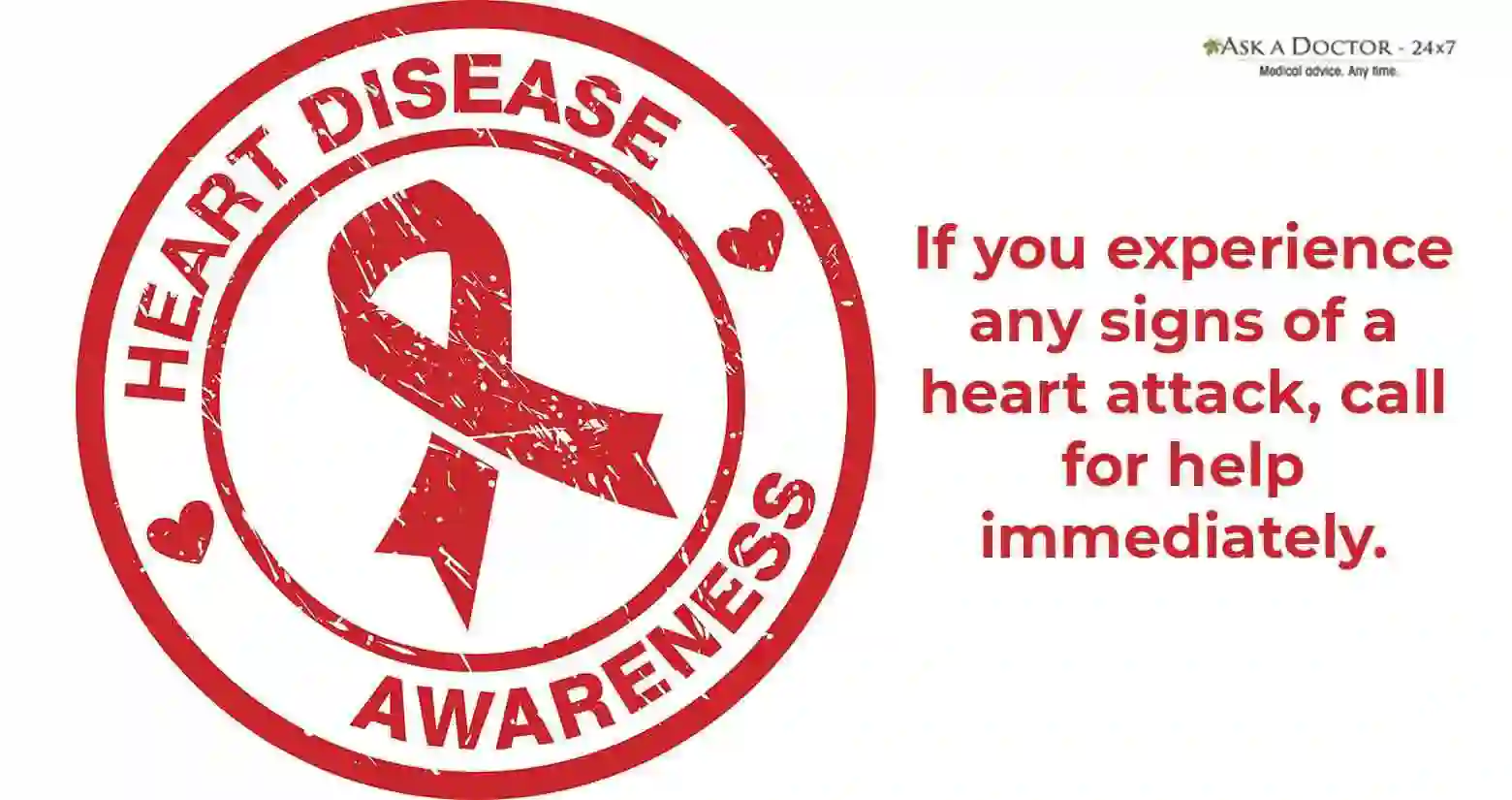
Most of the time, if the heart muscle does not get enough oxygen, people can identify the symptoms. If you’re unsure, consider consulting an online cardiologist, because even the subtlest signs of a heart attack can be fatal. Watch out for:
- Chest pain: Any pain, pressure, or discomfort in the chest area should be reported and thoroughly investigated. At times these feelings are intermittent. DO NOT ignore them even if they go away in a couple of minutes on their own.
- Pain or pressure in other parts of the upper body: Some people may feel no pain in their chest. Instead, they would feel a slight discomfort around one or both of their shoulders, arms, back, neck, or jaw. Some people even get indigestion-like symptoms such as nausea and vomiting when they’re having a heart attack.
- Other symptoms: Feeling out of breath without being physically active is a warning sign of heart attack. Some people may also break out into a cold sweat on a cold, rainy, and cloudy day if they’re having a heart attack.
Signs of a heart attack can be different in men and women. If you experience any symptoms of a heart attack, call for help immediately.
Ask a Specialist
Recent Questions


